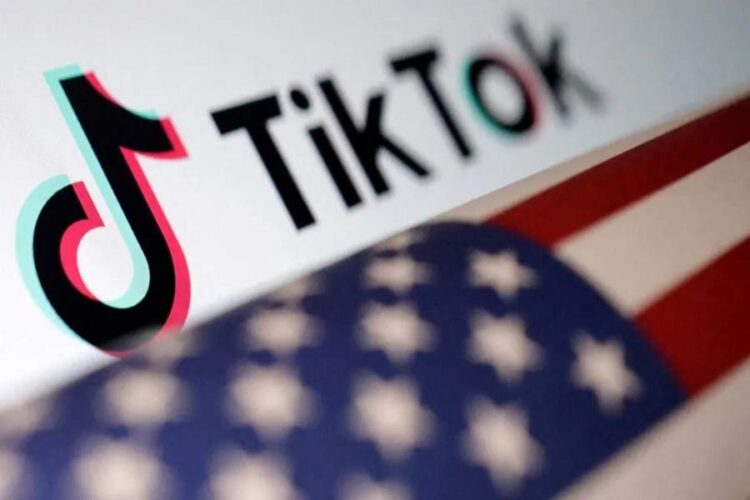In the era of digital innovation, the explosion of online connectivity brings global access, technological advances, and serious concerns about privacy, particularly for children. TikTok, a significant player in the realm of social media, is currently at the epicenter of a growing regulatory storm in the United States.
The Federal Trade Commission (FTC) has escalated its scrutiny of the platform by referring a critical complaint to the Department of Justice (DOJ). This action targets explicitly alleged breaches of children’s privacy by TikTok and its parent company, ByteDance.
This move underscores the increasing anxieties surrounding safeguarding the most vulnerable users in the digital domain, positioning TikTok in a contentious spot amid ongoing debates over privacy and security in the tech industry.
The FTC’s Findings and Allegations
The FTC’s investigation into TikTok has revealed serious concerns, revealing what the agency considers compelling evidence that TikTok is not only potentially neglecting the privacy needs of children under 13 but may also be actively engaging in practices that infringe upon stringent federal protections.
These findings suggest that TikTok could violate the Children’s Online Privacy Protection Act (COPPA), which mandates strict guidelines on collecting and handling children’s data, and the FTC Act, which addresses unfair or deceptive acts in commerce.
The scrutiny comes despite a previous agreement in 2019 between TikTok and regulatory bodies aimed at bolstering privacy measures for minors. This earlier agreement, intended to resolve similar concerns, now seems insufficient in the eyes of the FTC, which highlights a possible ongoing pattern of non-compliance by TikTok.
The allegations point to deeper systemic issues within TikTok’s operational protocols concerning data security and privacy protections, casting doubt on its commitment to adhering to U.S. regulatory standards and safeguarding its youngest user base.
This situation underscores a significant trust deficit and poses pressing questions about the effectiveness of past regulatory interventions and the need for more stringent enforcement in the future.
TikTok’s Defense and Corporate Response
In the face of severe allegations concerning privacy violations, TikTok has mounted a vigorous defense, underscoring its dedication to legal compliance and the ongoing enhancement of privacy safeguards for its users.
The company’s articulated response highlights a profound disappointment with the FTC’s aggressive move towards litigation, which comes after what TikTok describes as a prolonged period of constructive dialogue to resolve regulatory concerns amicably.
This shift from a collaborative approach to an aggressive stance has been particularly disheartening for TikTok, which regards the legal proceedings as a drastic and unnecessary escalation.
A spokesperson for TikTok reiterated the company’s commitment to upholding U.S. laws and expressed frustration over the FTC’s decision to prosecute rather than continue collaborative efforts to find a middle ground.
This response reflects TikTok’s strategy to emphasize its proactive measures in enhancing user data protection. It portrays the company as being forced into a defensive position, fighting to maintain its operational integrity and public image.
The emphasis on negotiation over confrontation underlines TikTok’s preference for resolution through dialogue, suggesting that the company views legal battles as detrimental to its business and consumer trust.
This legal challenge extends beyond the confines of corporate regulation, touching on broader societal and ethical issues. If TikTok’s alleged failures are substantiated, it could indicate a systemic problem within the tech industry concerning the handling of children’s data. Moreover, the case could influence future legislative and regulatory frameworks for digital platforms operating in the U.S., setting a precedent for how foreign-owned apps engage with American consumers, particularly minors.
Political Overtones and National Security Concerns
U.S. regulators’ intense scrutiny of TikTok is inseparably linked to broader geopolitical tensions in U.S.-China relations, casting the social media platform as a focal point in debates over national security and international diplomacy.
The concerns about TikTok hinge on allegations that the platform could act as a conduit for transferring American user data to Chinese authorities.
This scenario stokes fears about espionage and data manipulation. This apprehension has led to significant legislative measures, prominently including a law signed by President Joe Biden in April, which mandates ByteDance, TikTok’s parent company, to divest its U.S. operations by January 2025 or face an outright ban.
This legislation is a direct response to escalating worries about Chinese technology firms’ penetration into American digital and social landscapes, where they could exert undue influence or facilitate state-led surveillance.
The law embodies the U.S. government’s resolve to protect national interests against perceived foreign threats and underscores a stringent stance on safeguarding citizen privacy and national data integrity.
This situation places TikTok at the heart of a critical discussion about the balance between open technological exchange and national security imperatives, highlighting the complex interdependencies and the often adversarial dynamics of global tech governance.
TikTok’s Legal Countermeasures
In an aggressive move to counteract these legislative measures, TikTok filed a lawsuit in May to block the legislation. The company argues that the law constitutes an “extraordinary intrusion on the free speech rights” of itself and its users. This legal argument highlights the complex balance between national security, corporate governance, and individual rights, making the case a landmark in debates over digital rights and government oversight.
The unfolding situation has sparked various responses from the public and consumer advocacy groups. Many are concerned about the implications of the government’s actions on free speech and privacy. Others support the crackdown as necessary to protect children and secure the nation’s digital infrastructure from foreign interference. The public discourse surrounding this case highlights the complex interplay between consumer rights, child safety, and national security.
The tech industry and regulatory bodies will watch closely as the DOJ reviews the FTC’s referral and considers its next steps. The outcome of this case could have far-reaching effects on how social media platforms operate within the U.S. and how they handle sensitive user data, especially that of children. For TikTok, the stakes are high, and the resolution of this legal battle will likely resonate throughout the tech world, influencing policy, business strategies, and the fundamental rights of digital consumers.










